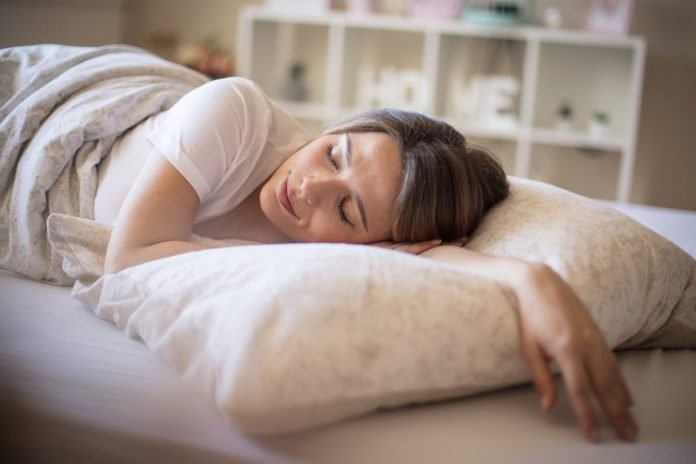
A team of researchers at The University of Queensland has found a connection between obstructive sleep apnea and an increased risk of developing dementia.
The study focused on the impact of a lack of oxygen to the brain during sleep and found that it could trigger Alzheimer’s disease in mice.
“We developed a novel way to induce sleep-disrupted breathing and found the mice displayed exacerbated pathological features of Alzheimer’s disease,” said Professor Elizabeth Coulson from UQ’s Queensland Brain Institute and School of Biomedical Sciences.
“Hypoxia—when the brain is deprived of oxygen—caused the same selective degeneration of neurons that characteristically die in dementia.”
Sleep Apnea and Elderly
Approximately 50% of elderly people are estimated to have obstructive sleep apnea, a condition in which throat muscles intermittently collapse and block the airway during sleep, causing stop-start breathing patterns.
The common treatment for sleep apnea is a CPAP (continuous positive airway pressure) machine, which keeps the airway open during sleep, allowing oxygen to reach the brain.
“We experimentally prevented the hypoxia and this stopped the cognitive impairment and neuron death, and also reduced the Alzheimer’s pathology,” Professor Coulson explained.
“This suggests that CPAP treatment of obstructive sleep apnea has the potential to reduce dementia risk.”
Potential Changes in Dementia Diagnosis and Treatment
The findings could influence how dementia is diagnosed and treated. Approximately 30% of people with obstructive sleep apnea who are fitted for CPAP machines already show signs of cognitive impairment similar to dementia.
However, the current hospital system doesn’t often refer these patients to dementia clinics.
“Some dementia clinicians have reported their patient’s memory has improved after their sleep problems were identified and treated,” Professor Coulson noted.
While not everyone with obstructive sleep apnea will develop dementia, it’s critical to identify those at risk.
Human Trials and Recommendations
The next step is to identify what levels of hypoxia lead to brain degeneration in humans.
Early stage human trials are currently underway in Brisbane and Sydney to determine the correlation between hypoxia, sustained cognitive impairment, and whether CPAP can reduce dementia risk.
“I would strongly recommend anyone with obstructive sleep apnea use a CPAP machine to maintain cognitive function, as well as assist with other health issues,” Coulson advised.
The study was published in the scientific journal, Nature Communications.
If you care about sleep, please read studies about the science on 3 traditional bedtime remedies, and this sleep supplement may help prevent memory loss and cognitive decline.
If you care about dementia, please read studies about walking patterns may help identify specific types of dementia, and common high blood pressure drugs may help lower your dementia risk.
The study was published in Nature Communications. Follow us on Twitter for more articles about this topic.
Copyright © 2023 Knowridge Science Report. All rights reserved.



